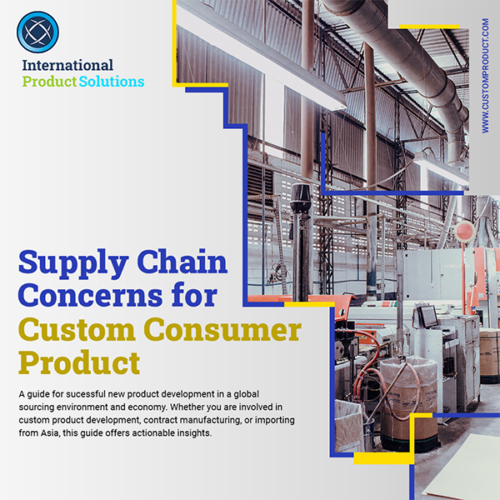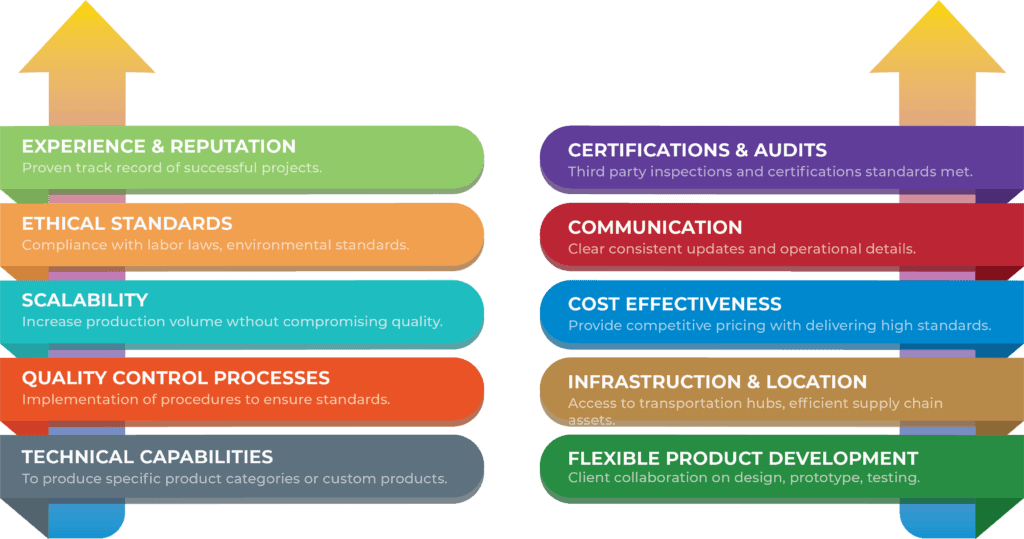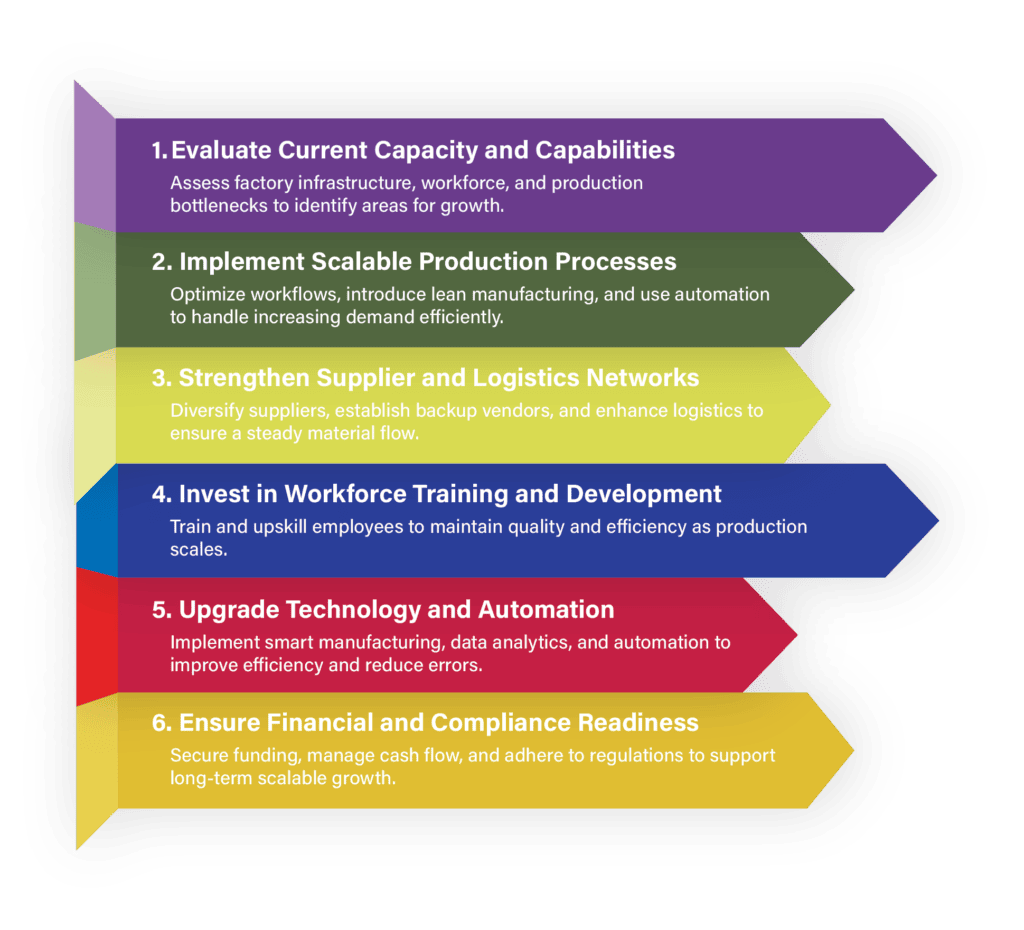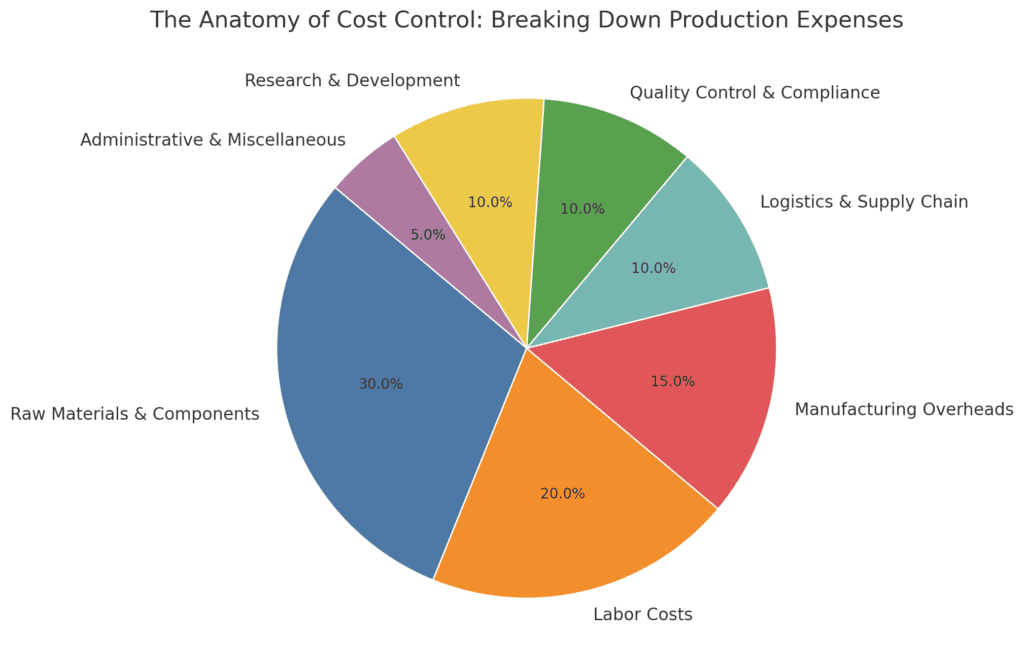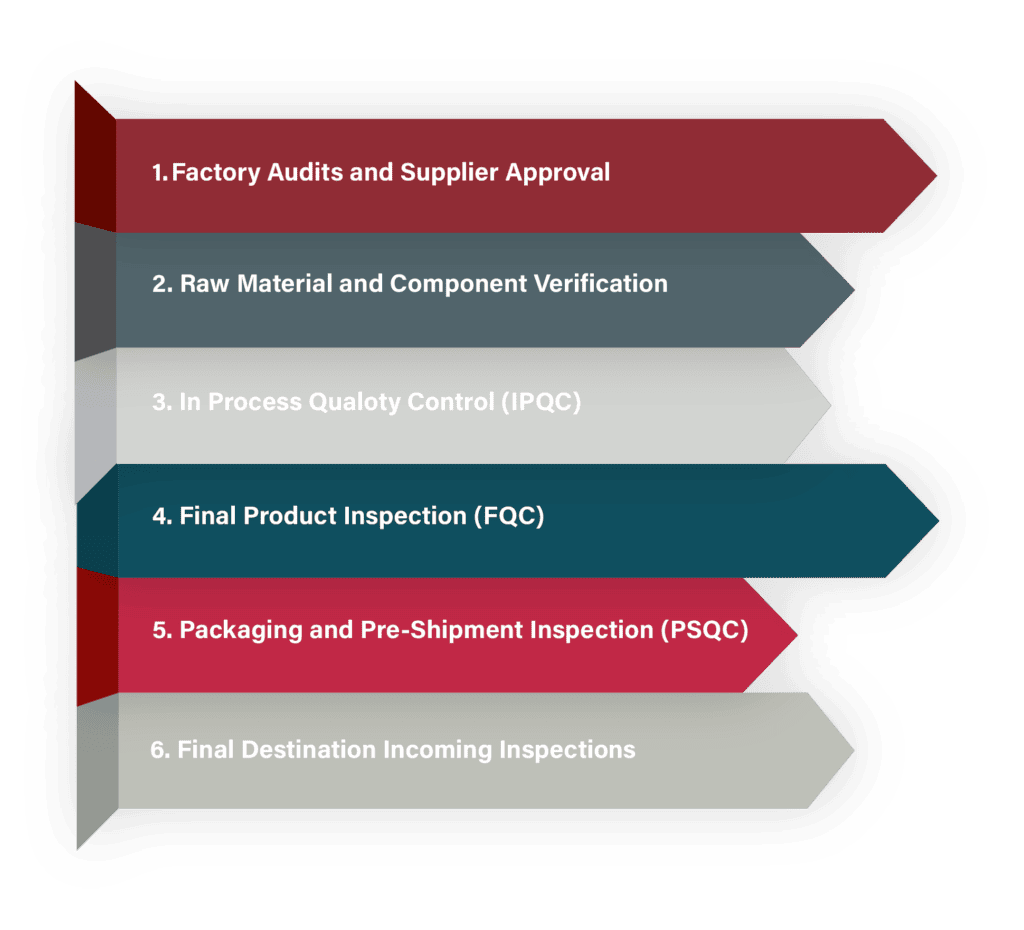Addressing Manufacturing Concerns for New Product Development: A Guide for Success
For businesses venturing into new product development, manufacturing capability is often a primary concern. Selecting the right manufacturing partner and ensuring seamless production processes can mean the difference between a successful product launch and costly setbacks. This white paper explores key manufacturing concerns – factory selection, production scale, cost control, and quality assurance – and outlines strategies to address them effectively. These strategies are supported by industry data and best practices to help guide your decision-making process. Whether you are involved in custom product development, contract manufacturing, or importing from Asia, this guide offers actionable insights.
Factory Selection
The foundation of successful manufacturing lies in selecting the right factory. A reliable factory possesses not only technical expertise but also demonstrates a commitment to ethical standards and robust quality control practices. Many new product developers encounter challenges such as lack of transparency or misaligned capabilities when vetting potential partners.
Challenges:
Identifying factories with expertise in specific product categories and custom product requirements.
Ensuring factories adhere to labor laws, environmental standards, and ethical practices.
Limited access to accurate, verifiable performance data for prospective factories.
Solution:
Comprehensive Vetting Process: Develop a step-by-step evaluation framework that includes the following:
On-Site Inspections: Conduct physical visits to the factory to evaluate infrastructure, equipment, and production processes.
Third-Party Audits: Engage independent auditors to review compliance with safety, labor, and environmental standards.
Performance History: Analyze production track records, client testimonials, and defect rates.
IPS Expertise: Leverage IPS’s 25 years of experience with pre-verified, trusted factories to reduce uncertainty. IPS has extensive networks in Asia to support importing from the region with confidence.
“According to a 2022 report, 75% of companies that conducted detailed factory assessments before initiating partnerships reported higher satisfaction with product quality and delivery timelines. By dedicating resources to proper vetting, businesses mitigate risks that could derail their custom product manufacturing efforts.”
Checklist for Factory Selection: Key Attributes of Reliable Manufacturing Partners
Production Scale
Once a factory is selected, ensuring that it can scale production to meet market demands without sacrificing quality becomes a pivotal concern. Many manufacturers struggle with bottlenecks, leading to delays or compromised quality as order volumes increase.
Challenges:
Difficulty in scaling production without introducing inconsistencies in the custom product development process.
Supply chain disruptions that limit material availability for scaled operations.
Communication breakdowns during scaling phases, especially when importing from Asia.
Solution:
Capacity Analysis: Before signing contracts, assess the factory’s current capacity and its ability to expand production. This can include: Reviewing workforce flexibility, machinery availability, and infrastructure scalability. Piloting smaller production runs to identify weak points before full-scale operations.
Integrated Planning: Collaborate with the factory to establish scalable processes and contingency plans for raw material shortages.
CAD Integration: Use advanced CAD tools to simulate production workflows and anticipate scaling challenges.
Case Example: One IPS client, a consumer electronics startup, successfully scaled production from 1,000 to 50,000 units per month without quality issues by conducting a phased rollout with their factory partner. IPS’s hands-on approach to contract manufacturing and production scaling ensured a seamless transition.
“Factories with scalable operations are 40% more likely to meet market demand without compromising quality, as per a study by the Global Manufacturing Institute. Effective communication and phased scaling strategies are critical.”
Scaling Success: Steps to Ensure Your Factory Can Grow With You
Cost Control
Balancing production costs with product quality and competitiveness is a complex challenge. Material expenses, labor rates, and logistics costs can fluctuate, adding unpredictability to the manufacturing process.
Challenges:
Rising raw material costs due to global supply chain disruptions.
Hidden costs from poor planning or inadequate oversight during contract manufacturing.
Trade-offs between cost reduction and maintaining product quality, especially for custom products.
Solution:
Cost Analysis Framework: Break down production costs into categories such as materials, labor, and logistics. Identify areas where optimization is possible without reducing quality.
Material Sourcing: Secure long-term contracts with trusted suppliers to lock in prices and ensure consistency.
Labor Efficiencies: Partner with factories that offer streamlined workflows and advanced automation technology.
Logistics Planning: Collaborate with logistics providers to reduce shipping costs through bulk shipments or optimized routing.
Prototype Testing: Create and test prototypes to identify cost-effective design adjustments before full-scale production.
IPS Advantage: With established supplier networks, IPS helps clients negotiate favorable terms and avoid cost overruns. Importing from Asia becomes a streamlined process with IPS managing logistics and cost efficiencies.
“Companies that negotiate long-term material supply contracts reduce production costs by an average of 18% compared to those using spot purchasing. Proper cost management directly impacts profitability and market competitiveness.”
Quality Assurance
No product development process is complete without robust quality assurance (QA). The risks of defective products reaching the market include customer dissatisfaction, increased returns, and long-term damage to brand reputation.
Challenges:
Lack of standardized quality checks at multiple stages of production.
Over-reliance on manual inspections that can introduce human error.
Difficulty in identifying defects early, leading to costly rework or waste.
Solution:
Multi-Stage Inspections: Implement QA protocols at various production stages, from raw material checks to final assembly inspections.
Automated Testing: Utilize technology such as machine vision systems to detect defects with higher accuracy.
Defect Analysis: Conduct root-cause analysis on recurring defects to improve processes.
Prototypes and CAD Models: Use prototypes and CAD simulations to identify and address potential quality issues before production.
IPS Role: IPS facilitates comprehensive QA measures by leveraging factory partnerships with strong quality control systems. The company’s experience with importing from Asia ensures that quality standards are maintained across international boundaries.
“Products manufactured with robust quality control measures experience a 50% reduction in customer complaints, according to industry data. Proactive QA minimizes risks and enhances customer trust.”
From Defect to Perfection: The Stages of Quality Assurance
By addressing manufacturing concerns through strategic factory selection, scalable production, effective cost management, and robust quality assurance, businesses can minimize risks and maximize the success of their new products. International Product Solutions (IPS) specializes in guiding clients through these challenges, leveraging 25 years of experience and trusted factory partnerships. From custom product development to contract manufacturing and importing from Asia, IPS is a reliable partner for your product’s success.

